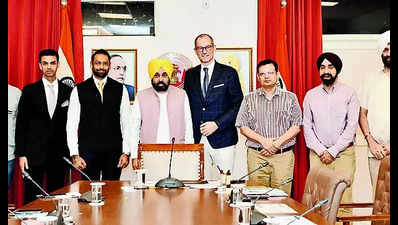The temperature is 94 degrees. The city is sweltering. Everybody’s getting on everybody’s nerves.
That is the situation at the beginning of Alfred Hitchcock’s 1954 masterpiece “Rear Window,” a great movie to watch or rewatch during a heatwave. Jimmy Stewart plays L.B.

“Jeff” Jefferies, a photojournalist stuck in a wheelchair with a broken leg in his Greenwich Village apartment. He’s bored and sweaty and itchy, with nothing to do but spy on all his neighbors with binoculars. Grace Kelly plays his girlfriend, Lisa Fremont, cool and unflappable about everything except her fervent desire that he settle down and marry her.
Their bantering and kissing and bickering is interrupted by his growing certainty that the events he’s been glimpsing through the windows of a neighbor across the courtyard add up to murder. Advertisement The movie’s action and suspense are propelled by this plot. Has the murder really taken place? Will Jeff and Lisa ever be able to prove it? Will the murderer become aware that they are watching and attempt to retaliate? But there’s something even darker and more interesting going on.
As you watch Jeff watching his neighbors you start to notice that everything he sees through their windows speaks in some way to his own conflict about whether or not to marry Lisa. There’s a young newlywed husband carrying his bride over the threshold of their new apartment where they passionately kiss before lowering the shades, which stay lowered for several days, a running gag throughout the movie. There’s a middle-aged couple who sleep head-to-toe on their fire escape; the only visible affection there is the wife’s love for her dog.
There’s a bedridden woman whose husband brings her trays of food but otherwise ignores her, except when she taunts him for phoning his girlfriend. Watching them wearily sniping at each other, Jeff says to a colleague who has jokingly suggested that he get married, “Can’t you just see me, rushing home to the electric dishwasher and the garbage disposal and the nagging wife?” “Jeff, wives don’t nag anymore,” says the colleague. “They discuss.
” “Maybe in high-rent districts they discuss. In my neighborhood they still nag.” He’s not only cynical, he’s terrified of love and marriage — of being tied down, domesticated, weighted by possessions and emotional ties and obligations.
Lisa, a successful fashion model, brings all sorts of luxuries into his small, scruffy apartment — a lobster dinner hand-delivered by a waiter from the swanky “21,” a silver cigarette case, a Mark Cross overnight bag, a dress that’s just off the Paris plane (“a steal at $1,100,” she announces, roughly $13,000 in today’s money). Advertisement Hitchcock makes these things both desirable and dangerous: Jeff sneers at all of it, but wow does Lisa make everything look enviably gorgeous, and she’s the most gorgeous thing of all. Whenever he’s irrationally nasty to her, she winces and so do you; but maybe it’s not so irrational if she really is a bourgeois devil bent on tempting him away from the career and no-strings life he loves.
Hitchcock knew how to make brilliant use of his appealing actors. How can a man be a misogynistic jerk when the man is as drawlingly rational as Jimmy Stewart? How can the woman be a shallow soul-killing materialist when she’s as subtly, coolly, erotically intelligent as Grace Kelly? What’s fascinating is that the movie argues both sides and doesn’t choose a winner — the movie itself is ambivalent. “Rear Window” was adapted from a short story by Cornell Woolrich , which contains a lot of the same elements: the incapacitated man staring out at the neighbors and piecing together the evidence of murder.
But there’s no Lisa, no personal entanglement, no inner psychological conflict refracted through glimpses of other people’s lives. The screenplay by John Michael Hayes incorporates Hitchcock’s own obsession with women as both alluring and dangerous — beautiful creatures to be destroyed as a defense against, or retribution for, their power over men. Advertisement Unlike other Hitchcock movies where this destruction is enacted with more overt violence, “Rear Window” wears its darkness lightly.
And it hangs onto its perfect equipoise all the way through. In the end the mystery is solved; the temperature has come down to a comfortable 72 degrees; the man is tamed, exhausted, and literally asleep, but smiling in his sleep. The woman, lounging nearby in blue jeans, is smiling too.
She’s shown him that she can be adventurous and daring, but maybe it’s just that she finally understands how to look like what he wants. As for you, the voyeur watching the voyeurs, you’re glad that these two beautiful people will probably get married. At the same time, you wouldn’t bet much on their living happily ever after.
Joan Wickersham’s new book, “No Ship Sets Out To Be A Shipwreck,” will be published this fall. Her column appears regularly in the Globe..


















